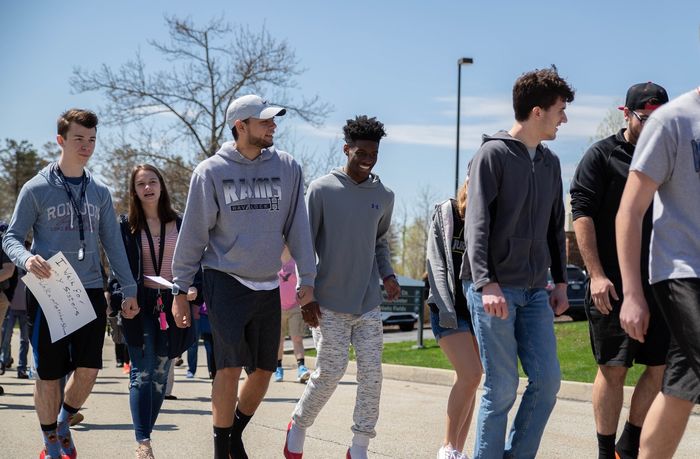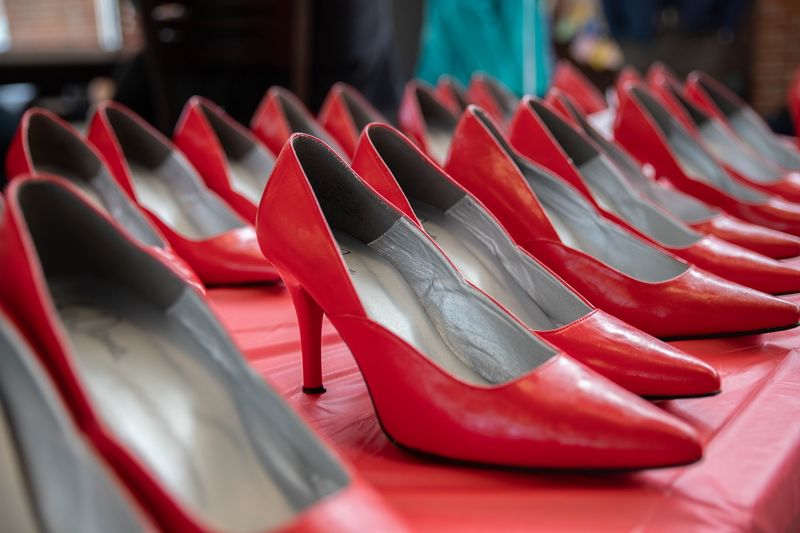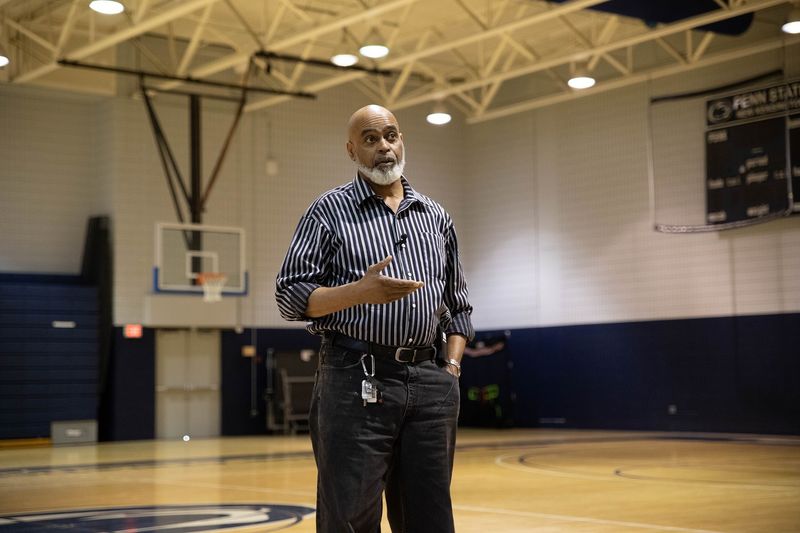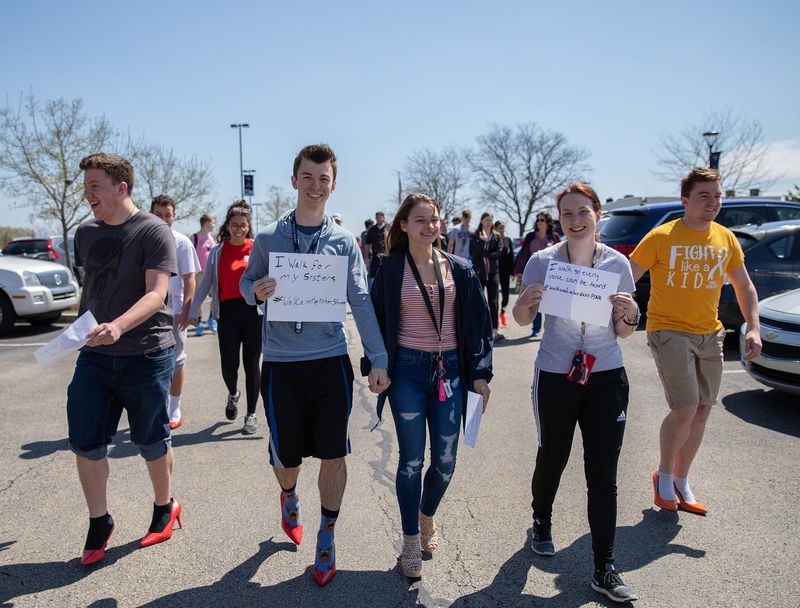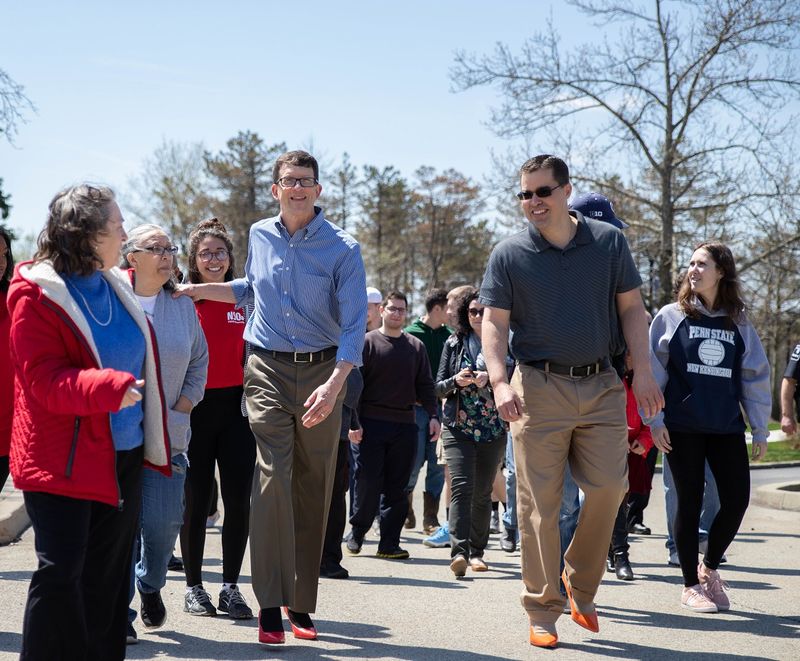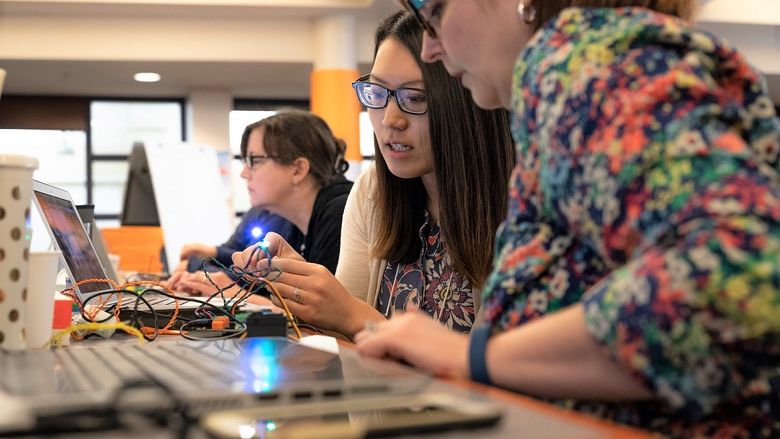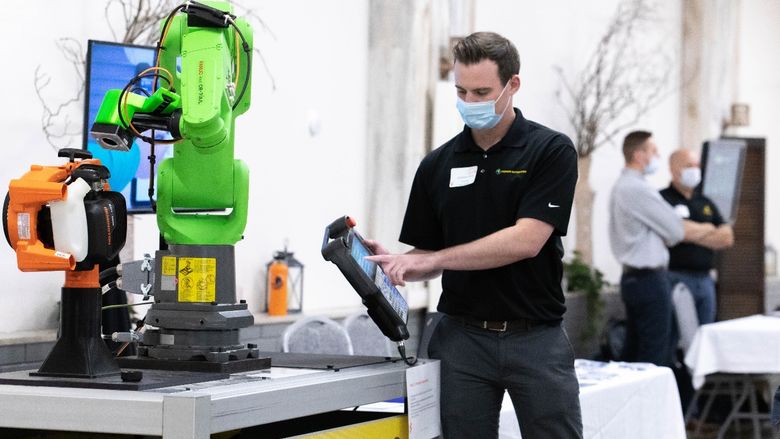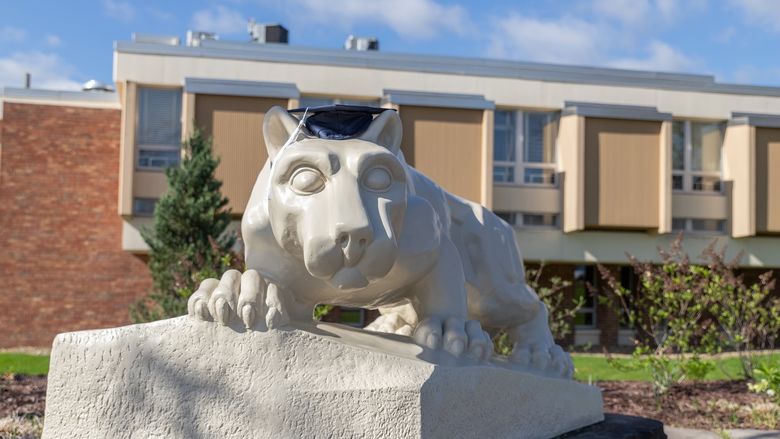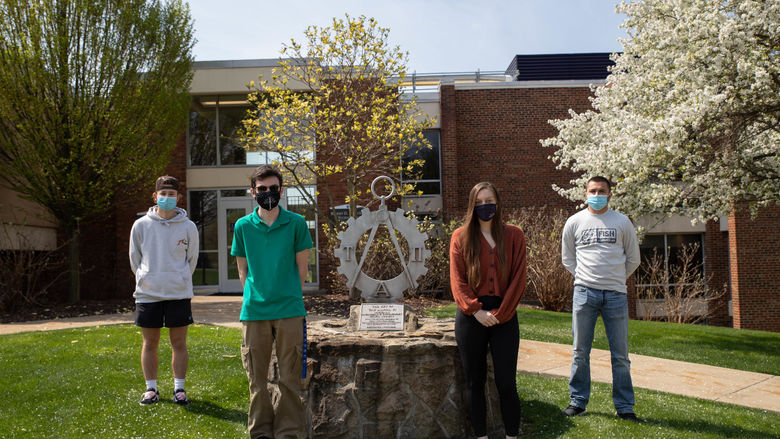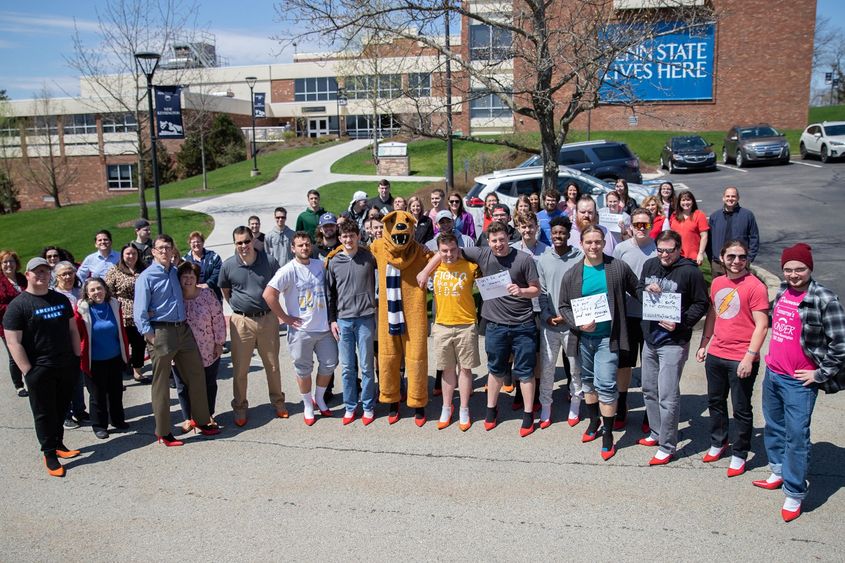
Penn State New Kensington students, faculty and staff took part in the fourth annual Walk a Mile in Her Shoes event on April 16. The event aimed to bring awareness to the prevention of sexual assault, rape and gender-based violence.
NEW KENSINGTON, Pa. — Walking a mile may not pose a challenge to most, but what if you had to do it in a pair of high heels?
For the past four years, Penn State New Kensington has held the Walk a Mile in Her Shoes event to increase awareness about sexual assault and domestic violence.
The event consists of men of all ages participating in a walk to take a stand against sexual assault and gender-based violence, but there’s a catch: All men are encouraged to complete the walk in a pair of red high heels.
“I think it raises awareness by involving men,” said Penelope Morrison, assistant professor and program coordinator of biobehavioral health at Penn State New Kensington. “Often we think of domestic violence and sexual assault as ‘women’s issues,’ but they aren’t. They really are men’s issues, as men continue to represent the majority of perpetrators of domestic violence and sexual assault.”
Kendra Kitko, counselor at the campus, took on the responsibility of preparing this year's event, co-sponsored by the athletics department, held on April 16.
“I wanted to make sure that the message of the event was conveyed to students,” Kitko explained. “It’s a lot of fun to see our male faculty, staff and students trying to walk in heels, but the purpose is to raise awareness about sexual assault and gender violence. Inviting a speaker to share on the topic and having our community partners participate helps to bring that message.”
With the help of Morrison, Kitko was able to get connected with the event’s guest speaker, Marty Miller, a co-facilitator of the Men Embracing Non-Violence and Safety (MENS) program, which provides education and intervention to men who perpetrate domestic violence.
“Having an event that is centered on men, and symbolically has them walk in women’s shoes, raises men’s awareness of the issues women face, but also, I hope, instills them with empathy for women and their feelings,” said Morrison, who is also an advocate for victims of domestic violence.
While the premise of the event is to increase awareness about sexual assault against females, it’s important to note that men can be victims as well.
In addition to Miller, the Alle-Kiski Area HOPE Center and the Blackburn Center were in attendance to show their support and provide students, staff and faculty with information about sexual assault and domestic violence. By having the community resources represented, the campus was able to see the resources and advocates available to them.
“Throughout my career as a social worker and counselor, I have worked with many victims of sexual assault, and I understand the many challenges they face,” said Kitko. “Working on a college campus gives me the opportunity to spread awareness so that survivors are empowered and the stigma and blame are lessened.”
Morrison added, “In addition to my teaching, research and volunteer work, I have also been trained in bystander intervention and have been invited to speak on the issue of domestic violence at various local and national conferences, symposiums and community meetings. I also have worked closely with folks on campus to bring domestic violence/sexual assault-related events to Penn State New Kensington.”
One such event was the “What Were You Wearing?” exhibit, which was featured in the Art Gallery during the fall semester. The powerful show aimed to disprove the theory that sexual assault occurs based on what individuals are wearing. The clothing, placed next to statements provided by victims, demonstrated that sexual assault can happen to women and men, no matter what they are wearing.
Like the exhibit, the Walk a Mile in Her Shoes event was well received by the campus, with nearly 50 students participating and another 25 to 30 faculty and staff in attendance showing support.
“I hope that they learned that sexual assault and gender violence is a real problem with real consequences for the victims, perpetrators and society in general,” Kitko said. “I hope that the young men in attendance understood what the speaker meant when he said that in order to have empathy, you must understand and deal with your own emotions first.”
Morrison continued, “For the young women at the event, I hope they realized that support is out there; they don’t have to hide and they can get help if they need it. For the young men, I hope they take away that they too have a role in ending domestic violence and sexual assault — it isn’t just a ‘women’s problem,’ it’s an ‘everyone’s problem.’”
Victims of domestic violence or assault can reach out to resources available locally and regionally. Community members can contact the HOPE Center’s crisis hotline at 888-299-4673 or the Blackburn Center at 724-836-1122. At the New Kensington campus, students can contact Kendra Kitko, licensed counselor, as well as access the Penn State Crisis and Counseling Resources Hotline by calling 877-229-6400 or texting “LIONS” to 741741. More information and resources can also be found on the Penn State Victim and Survivor Support and Advocacy website.
